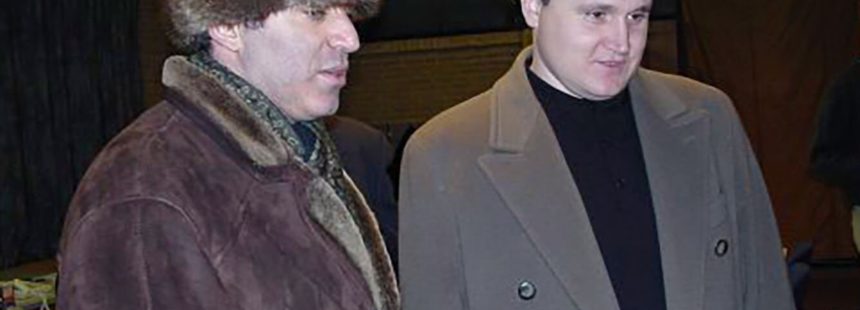

READ THE ORIGINAL ARTICLE AT THE NEW YORK TIMES
Athletes are not the only ones who need coaches. All top chess players have them too. They are often experts at particular elements of the game, or openings, that a player feels he or she needs to work on.
But they can fill many other roles. They can be confidants, friends, providers of consolation, psychologists and even, on rare occasions, guardians if there is an actual physical altercation during or after a match.
From the job description, it is clear that not every chess player is suited to be a coach; an unusual skill set is required. By many accounts, Yury Dokhoian, a Russian grandmaster who died on July 1 in Moscow at 56, had the necessary tools.
He became one of the most successful coaches in the world and, for a decade, was the coach of Garry Kasparov, the longtime world champion. After Mr. Kasparov retired as a chess professional, Mr. Dokhoian went on to have a successful career coaching other elite players and Russian national teams.
The International Chess Federation, the game’s governing body, announced Mr. Dokhoian’s death on Twitter. His daughter, Anastasia Dokhoian, said the cause was Covid-19.
In an appreciation on his website, Mr. Kasparov, whose mother, Klara Kasparova, died of Covid-19 on Christmas, explained how important Mr. Dokhoian had become to him as a coach. Mr. Dokhoian took on that role in 1994, when Mr. Kasparov was the world champion.
“Working, walking, eating, talking, it was a true relationship. I spent more time with him than anyone else before my retirement in 2005,” Mr. Kasparov wrote. “He gave me more than chess preparation; he gave me stability and confidence.”

Credit…David Llada
Yury Rafaelovich Dokhoian was born on Oct. 26, 1964, in a small village in Altai Krai, a southern region of Siberia, to Rafael and Raya Dokhoian. He learned to play chess from his father and soon demonstrated so much aptitude for the game that his family relocated near Moscow so that Yury could study at one of the chess schools there.
The genial Mr. Dokhoian became a strong player. From 1986 to 1993, he won or shared first place in eight international tournaments; for a time, he was ranked among the top 35 in the world, according to Chessmetrics, a widely followed ranking system. He was awarded the title grandmaster, the highest in the game, by the International Chess Federation in 1988.
He stopped playing professionally when he began working with Mr. Kasparov.
After Mr. Kasparov retired, Mr. Dokhoian started coaching Nadezhda and Tatiana Kosintseva, Russian sisters who became grandmasters under his tutelage. The sisters are among only 38 women out of more than 1,700 grandmasters worldwide.
Mr. Dokhoian was also the coach of the Russian national women’s team from 2006 to 2011. In 2010, with the Kosintseva sisters leading the way, the team won the gold medal at the Chess Olympiad.
After that, Mr. Dokhoian switched to coaching the men’s team, which had struggled since winning the gold medal at the 2002 Olympiad. In 2012, his first Olympiad as its coach, the men’s team tied for first with Armenia, taking silver when it narrowly lost out on tiebreakers.
Mr. Dokhoian began working with Sergey Karjakin in 2009. Seven years earlier, Mr. Karjakin had become the youngest grandmaster in history — he was 12 years, seven months old at the time — but he was struggling to live up to his early promise. With Mr. Dokhoian as his coach, Mr. Karjakin rose steadily up the ranks, finally qualifying to play a match for the world championship in 2016 against Magnus Carlsen of Norway, the reigning titleholder. Though Mr. Karjakin ultimately lost, he led the match three-quarters of the way through.
In his own tribute to Mr. Dokhoian, Mr. Karjakin called him kind but demanding. “He was ready to work 24/7,” he wrote, “if he believed in his protégé and saw a desire to improve.”
In addition to his daughter, Mr. Dokhoian is survived by his wife, Elena, and his sister, Irina.
Mr. Dokhoian’s most recent charge was Andrey Esipenko, a 19-year-old grandmaster currently ranked No. 27 in the world. Earlier this year, Mr. Esipenko became the youngest player to defeat Mr. Carlsen in a tournament game.

